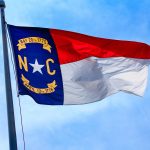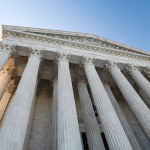State officials in Minnesota are pressing forward with their efforts to seize insulin from medicine manufacturers without paying for it, despite the fact that the U.S. Constitution requires the government to pay just compensation whenever it takes someone’s property. The lawsuit—which began more than three years ago—was originally dismissed on the grounds that the pharmaceutical makers had brought the case in the wrong court, but that ruling was reversed, and the case sent back for trial. Now, the Pharmaceutical Research and Manufacturers of America have asked the judge to rule that they’re entitled to just compensation, and the Goldwater Institute filed this brief in support of their argument.
The state’s rationale for seizing the companies’ property without payment is that medical companies charge high prices for medicine, and that this constitutes a “public nuisance” which the state can fix by simply taking the medicine without paying for it and giving it away. “Greed,” say Minnesota’s lawyers, can be remedied by the government just taking what it wants.
Not only is that clearly unconstitutional under the Fifth Amendment, but it’s also a perfect example of something we’ve noted before: that the theory of “public nuisance,” as it’s regularly used today, is so vague that nobody actually knows what that phrase means. As a result, it empowers bureaucrats to punish whatever behavior they decide to go after, whenever they see fit. Yet the Constitution not only requires the government to pay for property it takes—it also requires that the law be clear enough that people can know what’s allowed and what’s forbidden.
Politicians routinely exploit the theory of “public nuisance” in ways that threaten individual rights. In Oklahoma, for example, government lawyers tried to use the theory to claim that medical companies were responsible for drug addiction because they sell painkillers—a theory that the Oklahoma Supreme Court rejected. In other states, politicians have tried to argue that the manufacture of guns is a “public nuisance” because it leads to violence, and that the making of lead paint—at a time when lead paint was legal—is nevertheless a public nuisance because lead paint that’s still around today is an environmental hazard. Some lawyers have even tried to argue that fast food is a “public nuisance” because it leads to obesity.
In other words, “public nuisance” has become a catch-all term for whatever politicians consider bad—and a device for empowering courts to impose social policies on the country that have never been voted on by elected representatives. In this case, the target is “greed.” But as Thomas Sowell famously observed, it’s weird to say that people are greedy when they keep the fruits of their own labor—but that it’s somehow not greedy to steal their property without paying for it. As we argue in our brief, the state is trying to claim the moral high ground here, but in fact it’s the one acting unjustly—seizing property without payment in order to fund counterfeit compassion. It’s regrettable, of course, that there are people who need medicine and can’t afford it. But there are plenty of other ways for the government to address that problem: it could pay for it, for one thing—and for another, it could expand access to medical treatment and expand the opportunities for medical research, by lowering regulatory barriers that make it harder and more expensive to bring medicines and treatments to market.
You can learn more about our efforts to expand medical freedom here.









